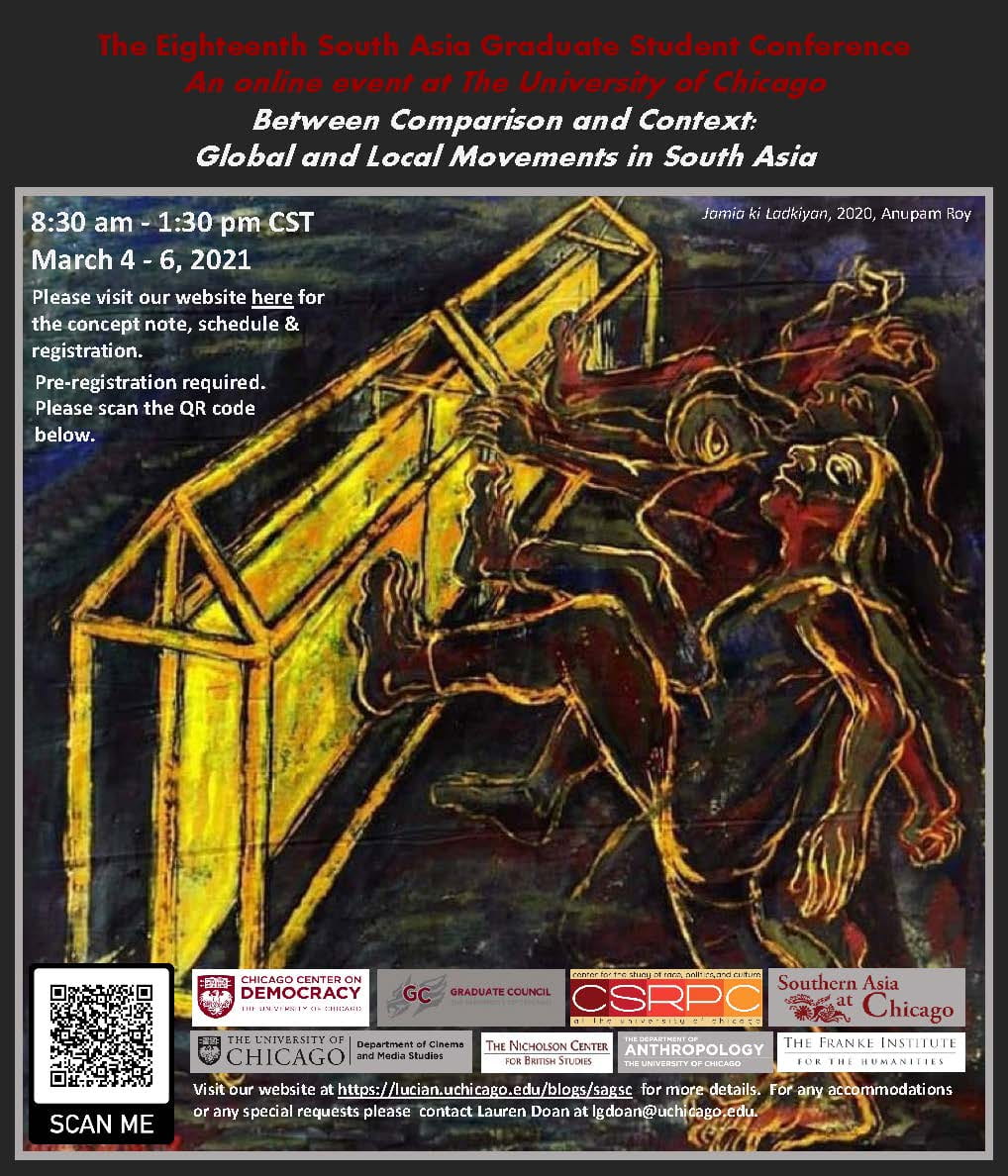March 4, 2021 at 8:30am to March 6, 2021 at 1:30pm
Organizing Committee: Supurna Dasgupta, South Asian Languages and Civilizations Krithika Ashok, University of Chicago Law School, Sanjukta Poddar, South Asian Languages and Civilizations, Faculty Advisor: Prof. Muzaffar Alam, South Asian Languages and Civilizations and History
Social movements have historically been the trigger for mobilization, action, and transformation in all parts of the world, including South Asia. The aim of this conference is to expand the study of movements in South Asia, while simultaneously interrogating South Asia as a field of study. Keeping in view recent instances of mobilization, along with examples from the long history of the sub-continent, we invite papers that study the emergence, forms of organization, methods, politics and impact of social movements in South Asia. In particular, we are interested in papers that engage with the methodological question of the context-specificity of these movements along with the ways in which they compare with other movements across the world. We welcome papers from diverse disciplinary and methodological approaches based on the broadest interpretation of the concept and practice of movements– contemporary as well as historical.
In their research, South Asianists often wonder whether knowledge about the region needs to be produced within a comparative schema, or if it can be generated within the specific context of the local alone. When analyzing movements across temporal and spatial planes, this methodological debate is tremendously productive whether across, or within, disciplines. For instance, should scholars of modern human rights movements work with the universalist assumptions of the concept or embrace a South Asia-specific understanding? Or, how does a scholar of the Bhakti movement use Western liberal terms of ‘reform’ to understand the religious movement in that context? Does movement mean the same thing across modern and early modern South Asia? How does studying Dalit movements in India, alongside racial justice movements in the US (and their transnational dialogue), improve our understanding of both?
Further details can be found here: https://lucian.uchicago.edu/blogs/sagsc/
